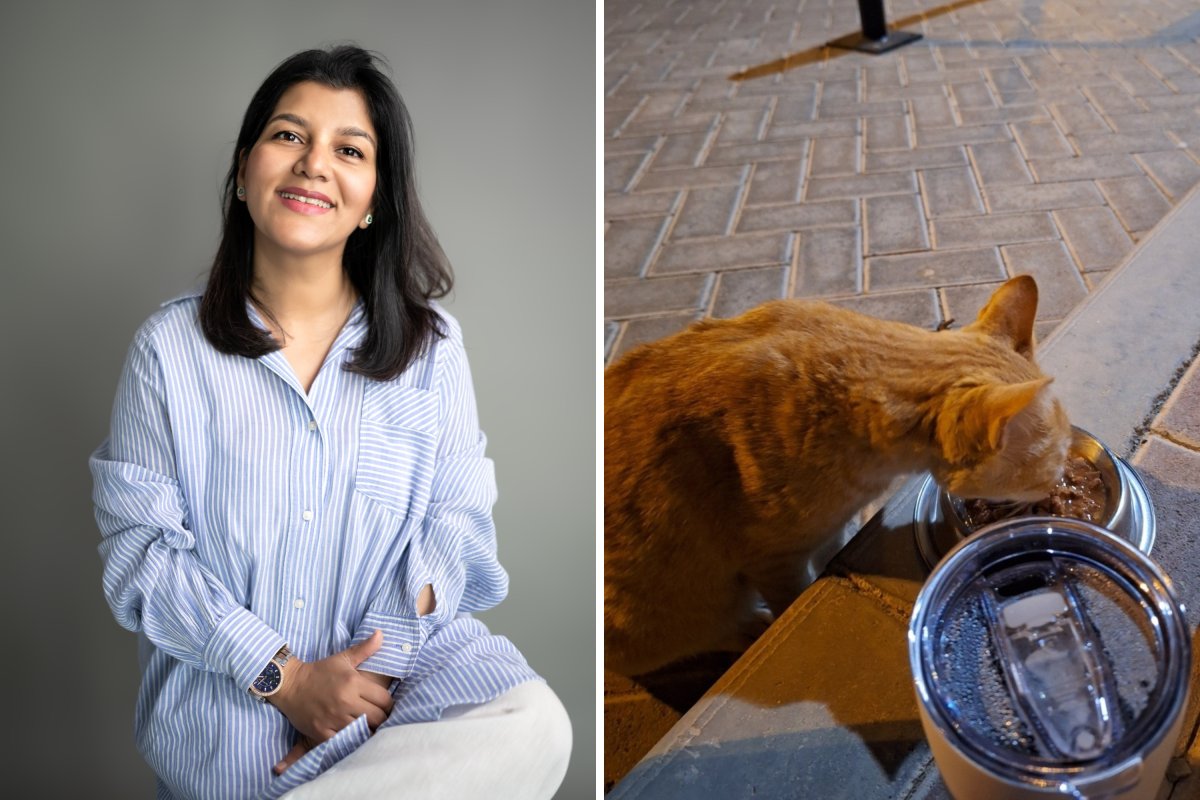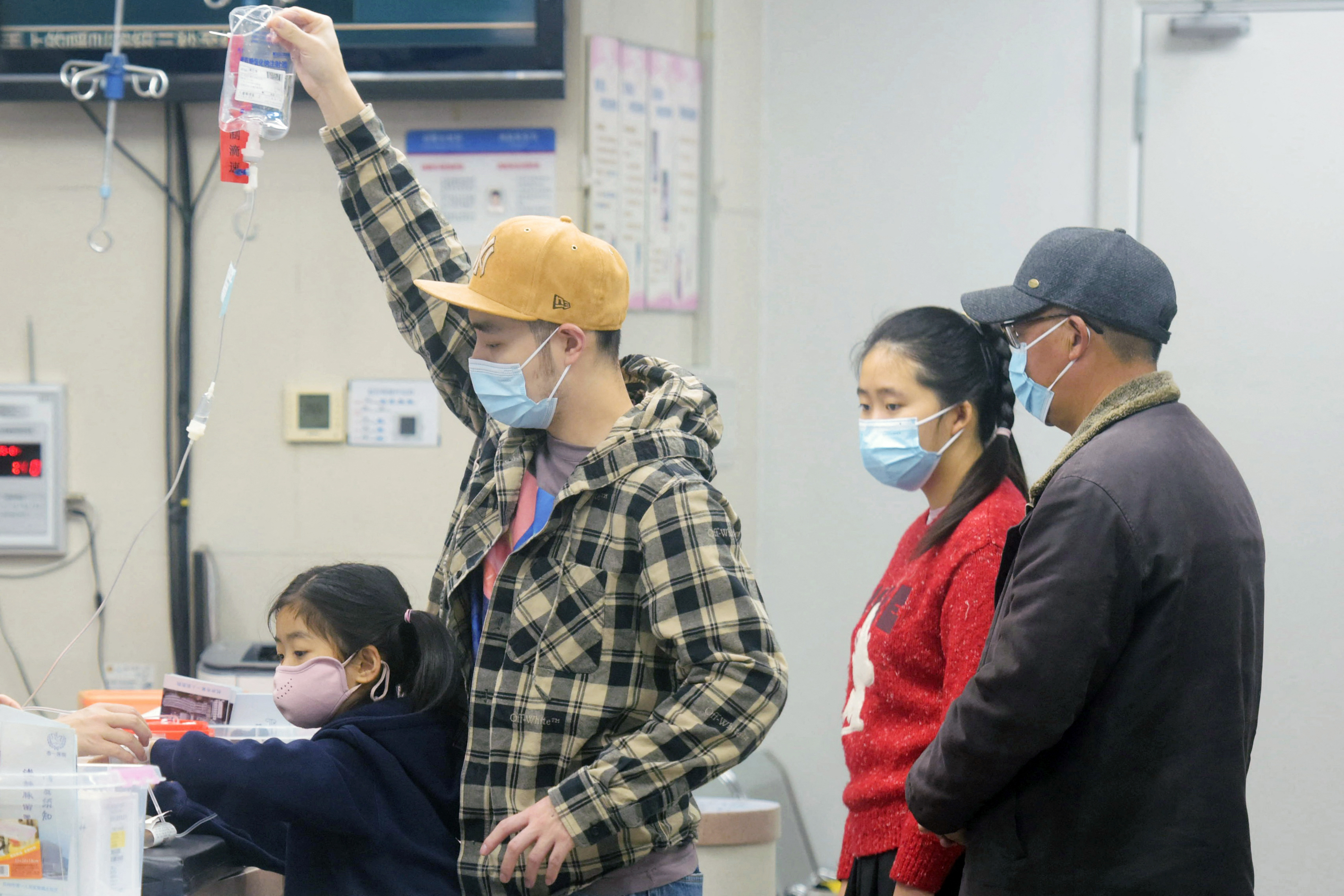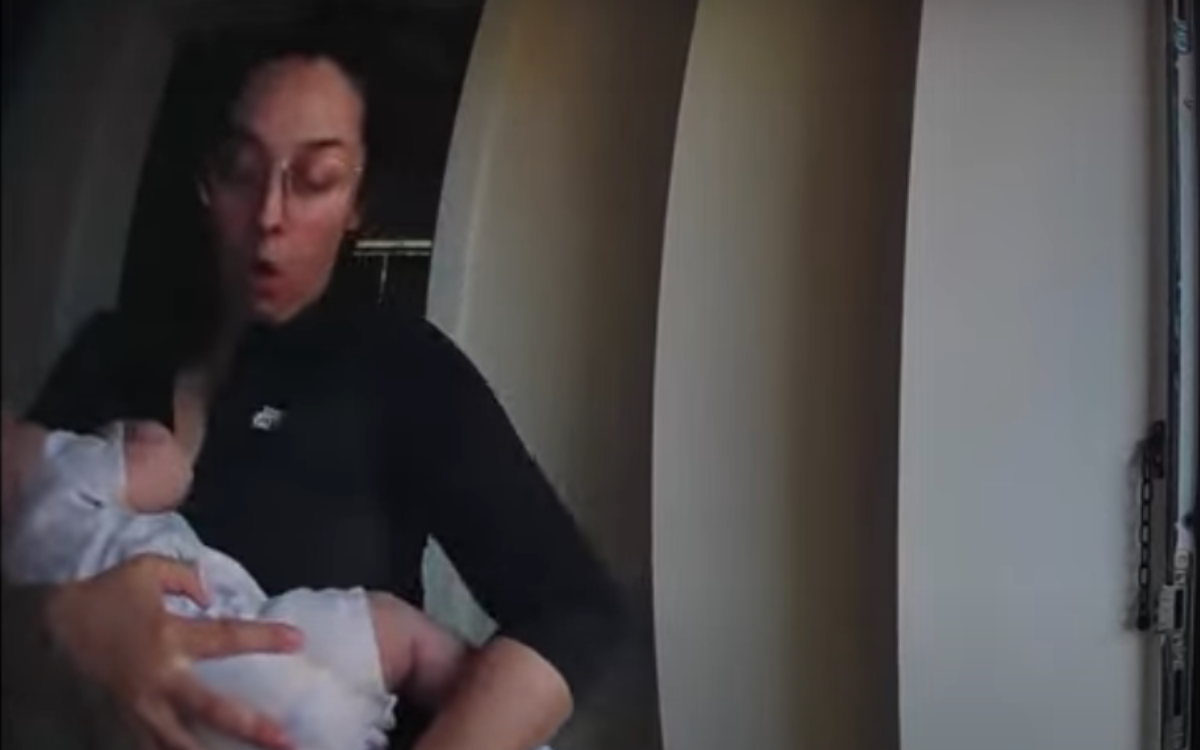It was a quiet morning in October 2023, when leaving for work at 6:30 a.m., I noticed her sitting still on the curb—a healthy adult ginger cat. I assumed she belonged to one of the ground-floor apartments, where lucky four-legged companions had outdoor access and returned home whenever they pleased.
That evening I found her in the exact same spot, sitting in the exact same position—facing the road. Three days in, I sent her picture to a friend who rescues cats. "She seems dumped and is probably waiting for her humans to pick her up," she responded. My spirits sank, confirming what I'd secretly started fearing.
The Middle East is a transient place for many expatriate families, and it's not uncommon for people to adopt pets when they're tiny and adorable, only to abandon them as they grow older and their maintenance becomes unsustainable for them.
By the end of the week, the ginger ran to my parked car as I unloaded groceries. Because I was carrying food for my own cats, I offered her a packet of wet food. From then on, she appeared every evening, waiting for me to feed her. Six months later, I named her Genie.
For the longest time, no matter what, Genie would only shelter under a car, scared, and always in the same parking spot. It broke my heart as I shed tears spotting her through my window every day.
Soon, however, Genie had become a neighborhood favorite. Everyone seemed to have fallen under her spell, and she'd started becoming a bit of a diva—throwing tantrums whenever someone dared to suggest she might be pregnant. Security guards stopped by to say hello, elderly mosque-goers noticed when she wasn't around for dinner, and toddlers eagerly brought her tasty treats.
This was when I began wondering if I could bring her home. Deep down, though, I knew it wasn't feasible. We lived in a small apartment with limited space and two female adult cats who just about coexisted in a delicate harmony. Plus, Genie had clearly adapted to the outdoors.

Feeling lost and helpless, I started spending more time with her, finding solace in her company. She'd nap beside me after her meal while I scrolled through my phone. Friends who missed me knew where to find me—on the pavement with Genie.
That's when I made her a promise. If I couldn't bring Genie home, I'd bring home to Genie.
The realization jolted me. As a lifelong Indian expat, I've never had a "permanent" home. Three generations of my family have lived in the Gulf. I have always been a fan of dark wooden furniture but never purchased any—not because I couldn't afford it, but because that's how most transient families live here. We live in our dreams. We live from boxes to boxes, moving from apartment to apartment.
Imagine coming home daily to a place you know will always be temporary. How do you decide where to plant your roots when you just don't know when you'd be uprooted? You furnish and decorate sparingly, preferring practicality over permanence.
We buy a house in our passport country because we're told we'll go back "home" someday. Because they tell you this is not where you belong. The only time my people did go back home was when they could no longer live here after their retirement. Home became a place my people went to perish.
As a woman in her 40s who never felt fully at home in her body or her surroundings, promising to be Genie's home helped me find a home within myself. The homeless cat made me realize home isn't four walls or a passport, it's what makes me, me. And as cliched and new-age as it might sound, I am enough.
Genie also taught me that to love is to learn when to let go. Whatever probably happened to her wasn't nice. But, would it have been fair to force her indoors in a confined space with other unwelcoming cats? I did what I could within my capacity, and then, I had to let go.
Over a year now, with the help of a friend, I continue to care for her daily. Genie has adapted too—she knows when it's okay to sit on the pavement facing the road and when she should take shelter in the cooler, shaded areas.
Maybe someday I will be able to afford a spacious house with a little backyard where I can offer Genie a peaceful retirement. Perhaps Genie will one day come home to my place and spend her days sleeping on a study table made of dark wood while I type away our story on my laptop.
Until then, I'm here for Genie, and I know Genie is here for me.
Sanobar Sabah is a communications specialist and an educator with keen interest in inclusion. Her essays have been featured in Newsweek, Beautiful Things by River Teeth, The Wire, Memoir Land, Ochre Sky Stories, Five Minute Lit amongst others. She is frequently found challenging patriarchy and the idea of perfection on Substack.
All views expressed are the author's own.
Do you have a unique experience or personal story to share? See our Reader Submissions Guide and then email the My Turn team at myturn@newsweek.com.




















 English (US) ·
English (US) ·